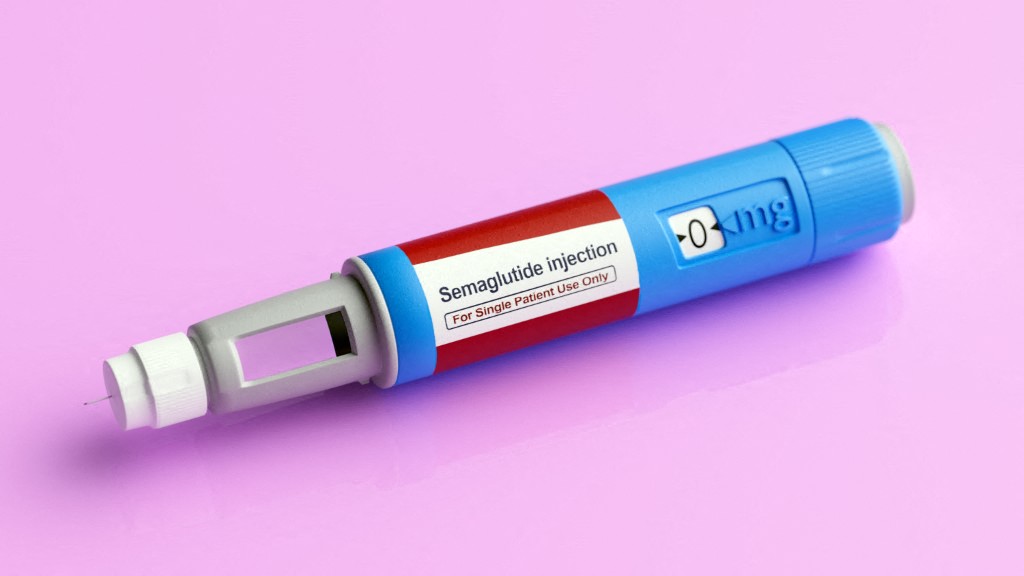Paris, France — A new generation of weight-loss drugs has proven remarkably effective, hugely popular and massively lucrative in the last few years, though they do have some drawbacks.
After France on Friday became the latest country to allow all doctors, rather than just specialists, to prescribe these drugs, here are some key questions about them.
How do they work?
The most well-known of this new wave of drugs are Danish pharma firm Novo Nordisk’s Ozempic and Wegovy, as well as US company Eli Lilly’s Mounjaro.
These drugs enhance the action of a hormone in the pancreas called “glucagon-like peptide 1”, or GLP-1, the name given to this family of medications.
The hormone affects the secretion of insulin, so was first targeted to develop drugs to combat diabetes.
But it turned out that GLP-1 drugs also suppress people’s appetite by making them feel fuller.
A revolution?
Obesity experts now agree that these drugs are a historic breakthrough in the history of people trying to lose weight. Previously, surgery was the main option for obesity when diet and exercise did not work.
This is no small feat. Obesity affects 900 million people worldwide, in what is considered a major crisis.
The new drugs “cover a major unmet need: obesity was one of the only chronic diseases for which there were few medications,” French endocrinologist Emmanuel Disse told AFP.
During clinical trials, the drugs have been found to reduce people’s weight by an average of 15 to 20 percent.
Limitations? –
However these drugs do have some limitations, including side effects.
The semaglutide drug used in Ozempic has been approved for diabetes since 2017, so there is now nearly a decade of research on its use.
A large study using health data from hundreds of thousands of US veterans published in January found that GLP-1s are not linked to a higher risk of heart problems or suicidal thoughts, as had previously been suggested.
However there are rare cases of serious side effects, such as damage to the pancreas, it said.
More commonly, they can also cause nausea, vomiting, migraines and disturb sleep, which can turn some patients off the drugs.
They also do not work for everyone — some people taking the drugs do not lose weight.
And the effect only lasts when people are taking the drug, meaning that they potentially need lifelong treatment.
They are also expensive, sometimes costing over $1,000 a month in the United States to 300 euros ($340) in France.
The drugs are also only available in injectable forms — though pharma firms are developing daily pills that have shown promise in early trials.
Who should use them?
National health agencies have emphasized that these drugs should only be prescribed to overweight or obese people for whom things like exercise and diet have failed.
However there is plenty of evidence that some people who are not overweight use the drugs simply to lose a few extra kilos.
France’s ANSM medications authority said that these drugs should “not be used for weight loss for aesthetic purposes,” warning that inappropriate use could expose people to “adverse effects that are sometimes serious”.
What next?
Steven O’Rahilly, head of Cambridge University’s Institute of Metabolic Sciences, told AFP he was confident there will be “a pretty rapid evolution of drugs that are more effective, with fewer side effects, cheaper and more convenient”.
“It may be more of a challenge to combine all those four advances in a single medicine,” he added.
With billions of dollars at stake, pharma firms are racing to be the first to market with a new treatment.
Novo Nordisk’s experimental drug amycretin could be even more effective than existing GLP-1s, according to early trial results published in The Lancet on Saturday.
There has also been a growing field of research revealing the potential benefits of GLP-1 drugs beyond obesity.
They have been linked to improvements for a range of maladies, including dementia and addiction. It is still unclear if these are a direct effect of the drugs, or are linked to improvements with obesity or diabetes.








